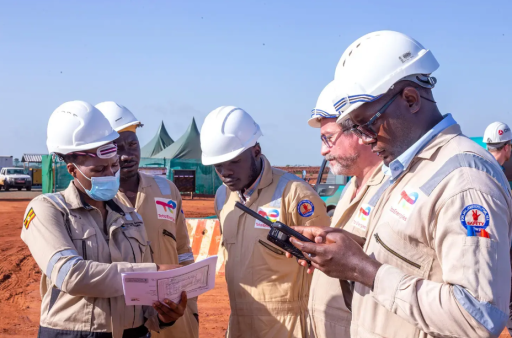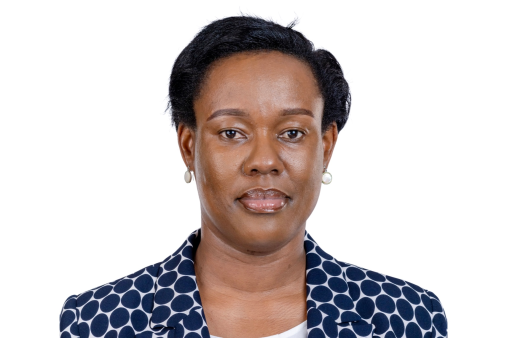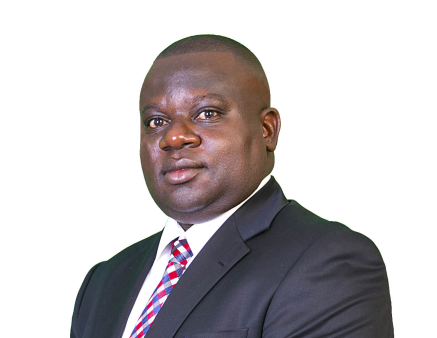Congratulations on completing your first year as Chairperson of the Tax Appeals Tribunal. For starters, many people do not understand the mandate of the Tribunal as well as, how does it safeguard its independence and impartiality?
Our mandate is to resolve disputes between the URA and taxpayers. This mandate is derived from the Constitution. In addition, we are the court of first instance in tax matters. This means that all tax-related disputes must be heard by the TAT first. In the past, taxpayers would file their cases before the High Court, and this was done to circumvent payment of the 30% deposit of the tax in dispute, which is a requirement under the TAT Act. However, the High Court is an appellate court with respect to tax matters.
Taxpayers are free to represent themselves at the TAT and those who self-represent are always adequately guided through the process. This is also made possible by the fact that our proceedings are informal and less technical than conventional court procedures. We encourage roundtable conversations and reserve litigation for complex cases or matters of legal interpretation
How do we safeguard our independence and impartiality? Firstly, the TAT Act requires us to discharge our functions independently and not be subject to the direction or control of any person or authority. We guard this jealously. For example, we have zero tolerance to bribery. Further, proceedings are heard by a panel of three members and members are free to dissent. In fact, we do get a number of dissenting decisions. We also do not discuss cases with a party in the absence of the other.
In sum, we can be trusted to resolve disputes in an independent, fair and impartial manner. To enhance transparency, we intend to introduce livestreaming of our proceedings. Anybody should, at any given time, be in position to follow our proceedings. This will enhance accountability, not only for us, but for all actors – taxpayers, their representatives as well as URA.
Reflecting on this, your first year- both personally and professionally- what key experiences have shaped your leadership journey in this role?
Thank you. The first year has been a rollercoaster ride – exciting yet challenging at the same time. There has been a lot to learn, relearn and unlearn. Learning the intricacies of government and the public sector; unlearning or modifying habits that may have served me well in private sector but do not work in the public sector; relearning certain the basics such as the fundamentals of leadership and service –growing people, motivating and inspiring them, creating a collaborative environment and encouraging innovation and creativity.
It has been challenging adapting to public sector ways of working. This has required me to build new networks and make new professional connections. All this has necessitated me to step out of my comfort zone and to keep asking, seeking and knocking at doors. It can be intimidating at times, but I have been sustained by my faith and belief in God, to whom I am ultimately accountable.
I have also been supported by our members, staff and mediators who have risen up to the enormous task ahead of us. For example, although our members are part-time, they have dedicated significant time and effort to the execution of our mandate. We hold about 80 sessions every week, and all that is made possible by the collective team.
With your impressive qualifications, including a Bachelor of Laws from Makerere University and a Master of Laws in Taxation from the London School of Economics, coupled with a successful 17-year career at PwC, a world of opportunities lay at your fingertips, including the possibility of going into the more lucrative private solo tax practice. What inspired you to take on the role at the Tax Appeals Tribunal?”
I had a great 17-year career in tax and business advisory /consulting. However, a time comes in one’s career or life when one begins to think beyond their individual pursuits and search for a greater societal purpose. That point came about in 2019/2020 during the COVID-19 lockdown – the pandemic made most of us introspect. I began to ask myself, what more can I do? How do I want to be remembered? These questions stirred up a longing to give more of myself to service, and when the opportunity came to join the Tax Appeals Tribunal, I seized it.
I saw TAT as a platform that I could use to make a difference to our country’s tax system. While taxation is at the core of the existence of every nation, it is a feared and often misunderstood subject; even in biblical times, tax collectors were feared. There is a huge opportunity to change attitudes and perceptions about tax. This is critical now than ever before, given the government’s efforts to reduce dependency on aid by increasing government revenues through taxation and other non-debt income sources. Tax dispute resolution plays a critical role in this.
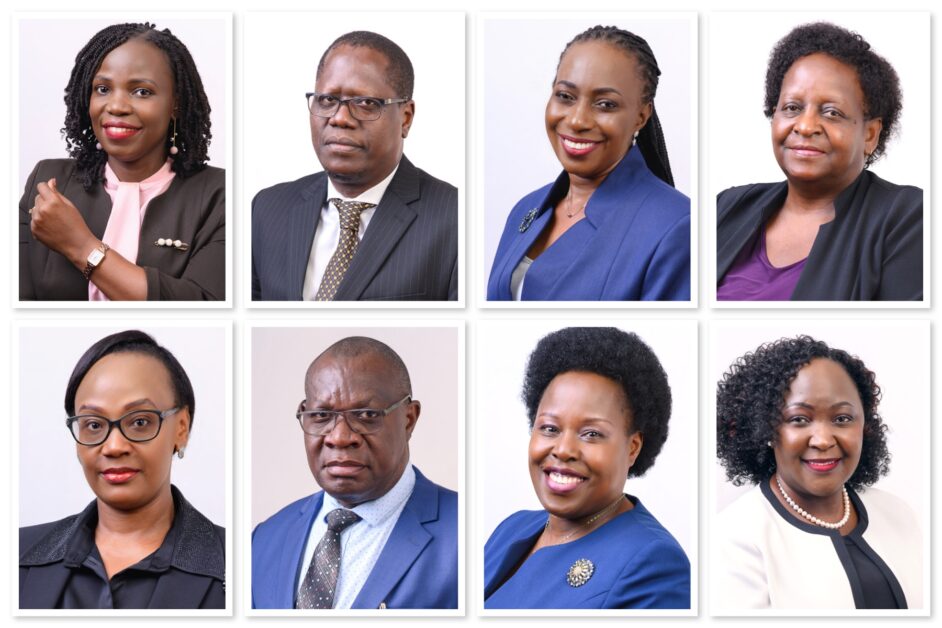
In what ways has your leadership style evolved or been challenged by your role at the Tribunal? How have the unique demands of leading a public sector body shaped your approach to leadership, decision-making, and team dynamics?
There are things that I took for granted while I was in the private sector. The training, coaching, mentorship, leadership, resourcing, as well as the abundance of opportunity. However, most of these things are limited to the public sector. This has required a modification of my leadership style.
I am inherently a results-oriented person, which meant that I demanded excellence and high performance from the people that I led. However, while I still expect the same, I am learning to lead with compassion, recognising that people cannot become excellent if they have not been given the right opportunities, the right support or the right coaching to grow them into excellence. Therefore, I am learning to take a longer-term view rather than expect immediate results.
For example, if someone is not delivering in their role, I now make an effort to understand the cause. For example, have they been given the right training? Are they being mentored? Do they have the tools and resources needed to deliver their work? In addition, a key difference between the private and public sectors is that it is not easy to hire and fire in the public sector. Therefore, one has to make the most of the talent that is available. I am now being more intentional about equipping others, and this requires moving beyond immediate solutions to cultivating lasting skills and leadership qualities.
How has your extensive background and expertise in international tax and transfer pricing contributed to your effectiveness in this role? Which aspects of this specialised knowledge have been most valuable in navigating the complexities of tax dispute resolution?
Tax dispute resolution requires technical competence in the tax area. International tax and transfer pricing are one of the most complex areas of taxation. Therefore, having the technical skills and experience has been helpful in my work. However, technical skills account for about 30% of the skills needed to succeed in any role. Other skills and attributes, such as people management, emotional intelligence, strategic planning, conflict management, and relationship building, among others, are crucial for attaining sustainable impact.
Upon taking office, what did you identify as the Tribunal’s greatest strengths, and what were the immediate challenges you faced? How did these shape your early priorities and strategies?
Our greatest strength is the increasing demand for our services. For the last 25 years or so, we have been helping taxpayers and the URA resolve disputes. Disputes filed with us have significantly increased in the last 10 years following the 2017 Supreme Court decision in Rabbo Enterprises v URA, where the court held that we are the court of first instance in all tax matters. This enabled TAT to make a significant contribution to jurisprudence with landmark decisions such as Tullow Oil v URA, among others. For example, new applications increased by 80% from 219 in 2023 to 400 in 2024. The TAT has, over the years, built a reputation for fairness and objectivity in adjudicating disputes, thereby building public trust. We shall continue to build on this.
Due to the increasing demand for our services, the immediate challenge that we have had to deal with is the case backlog. The lack of coram in the first half of 2023 significantly affected our operations and increased the backlog. For example, despite having so far resolved 171 disputes with a value of UGX 235 billion in the last 9 months ended 31 March 2025, we remain with a case load of 467 disputes with a value of UGX 1.2 trillion. Therefore, the task ahead of us is enormous.
During your first year at the helm, what key reforms or improvements have you implemented within the Tribunal? How have these changes addressed operational challenges and enhanced the Tribunal’s effectiveness?
The first thing that we did was to increase the number of sessions to deal with the backlog. While we had a second courtroom, it was not being fully utilised. Therefore, we operationalised it to enable multiple sessions to be held concurrently, and this has helped a great deal. We have since doubled the number of sessions, and we are currently averaging 80 sessions a week.
We have also simplified our processes by adopting a more informal approach to dispute resolution. Our process now begins with a conferencing session, which must be attended by the taxpayer and the URA assessing officers/objections team to discuss the dispute and how best to resolve it. This was a move from conventional litigation, where parties send their lawyers or tax agents to represent them. The direct involvement of the taxpayer and the URA assessing officers/ objections team allows the parties who are directly affected by the dispute to take ownership of it and drive its resolution.

In keeping with the times, we also opened digital channels of communication on key social media platforms such as X, WhatsApp and LinkedIn. This has increased the visibility of the work that we do and has especially improved the dissemination of our decisions to wider audiences beyond Uganda.
Has the Tribunal’s operational capacity (in terms of membership, staffing, or resources) improved over the past year?
The Tribunal was fully constituted on 1 July 2024, with all nine positions filled, significantly enhancing our capacity to conduct multiple sessions concurrently.
However, we still have staffing and resourcing gaps in respect of legal researchers and research assistants. This has proved a challenge in executing our mandate, as tax is a complex and dynamic area that requires individuals with a background in taxation and strong research skills.
We also believe that investments in technology, such as an e-filing and case management system, should alleviate some of the operational inefficiencies we face. We are also exploring how to use AI in legal research, especially around the analysis of legal precedents. This should help reduce the amount of time it takes to research and write decisions.
Could you share insights into the trends in the Tribunal’s caseload over the past year? How have these trends shaped your approach to managing the Tribunal’s workload and addressing any emerging challenges?
As of 30 June 2024, the Tribunal has a case load of 345 cases worth UGX 1 trillion. We carried forward this case load into the current financial year, which is our first year.
By 31 March 2025 (9-month period of FY 25), we had resolved 171 cases with a value of UGX 234 billion. Therefore, in terms of the disputes that we had at the beginning of the year, 49.6% of the number of cases and 22.5% of the corresponding value have been resolved.
However, while we are resolving disputes and closing cases, new ones are filed every day. From 1 July to 30 April 2025, we have received close to 300 new applications worth approximately UGX 430 billion. We receive an average of 25-30 new applications per month. Therefore, we are constantly at work.
On average, it takes us about 10 months to resolve a dispute from the time it is filed with us. We are working around the clock to bring that number down to 6 months.
How would you assess the current state of tax dispute resolution in Uganda? What are the key trends, challenges, and opportunities you see shaping the system today?
The vast majority of our disputes concern VAT and income tax. These are dominated by small and medium-sized taxpayers who account for 75% of the number of disputes before us. This is indicative of a poor compliance culture in this segment brought about by a lack of awareness/understanding of compliance obligations. Most taxpayers in this category do not keep records and are therefore prone to assessments.
As indicated, tax disputes are on the rise. As the government ramps up efforts toward domestic resource mobilisation to widen the tax base, increase the tax to GDP ratio, reduce dependency on dwindling aid and reduce borrowing, there is a corresponding increase in tax disputes. This is because URA is responding by strengthening its administration functions in areas such as assessment, collection, and enforcement.
Further, disputes are also becoming increasingly complex. For example, only a handful of disputes (approximately 50) account for close to 75% of the value of the disputes before the TAT. These are cases where the tax in dispute is above UGX 5 bn. These 50 or so cases primarily involve multinational corporations that have complex structures and are highly integrated. Unlocking disputes involving multinational or large corporations requires a good understanding of their business models. This requires us to continuously build capacity to keep up to date with changing business models and operating environments.
How would you assess the relationship between the Tribunal, the Uganda Revenue Authority, and taxpayers? What role does trust play in this dynamic, and how can it be strengthened?
Everything rises and falls on trust or the absence of it. The reason we have disputes in the first place is that there is an erosion or breakdown of trust. The URA and taxpayers have two opposing mandates – for the URA, to collect and administer the nation’s taxes; for the taxpayers, to pay as little tax as possible. The two will always be in conflict. It is difficult for the two sides to trust each other. Studies have also shown that Uganda generally has a poor taxpaying culture characterised by evasion and non-compliance.
That is where we come in – to build and restore trust in the tax system by providing an independent avenue for resolving tax disputes. From my personal experience, taxpayers, especially those in the SME category, want to be heard, listened to and understood. Most eventually pay the taxes assessed after they have understood where they went wrong and what could have been done differently. Therefore, it is upon all the players in the tax system to sensitise and educate Ugandans about taxation and the importance of compliance. This cannot only be left to the URA. The TAT, lawyers, accountants, local government, etc, must actively play this role.
How has the legal landscape, particularly the introduction of mandatory mediation before hearings, influenced the outcomes of tax disputes? What impact has this approach had on the resolution process?
Mediation / alternative dispute resolution plays a significant role in tax dispute resolution. The vast majority of disputes before the TAT are arithmetic, requiring reconciliation of figures and taxes due. These are primarily handled by the TAT mediation team, who facilitate discussions between the URA and taxpayers. We currently have a team of four mediators, and they resolve approximately 70% of our disputes through mediation. Matters that are not successfully resolved by the mediation team are referred to the Tribunal for resolution.
Looking ahead, what are the top 3–5 priorities you have set for the Tribunal over the next two to three years? How do you plan to address these challenges and opportunities?
Our top priorities are automation and mass sensitisation. Automation should feed into our systems, processes and procedures and lead to efficiencies. For example, when we implement an electronic case filing and management system, it should ease the filing of applications, submissions and supporting documentation. This, in turn, should ease the retrieval of files. Automation should flag disputes that are overdue and allow for quick remedial action. All this will help reduce the case backlog.

We shall also be looking into how to deploy AI to facilitate our work, especially in areas of research and case analysis.
Sensitisation of the public is top of the agenda as there is a need for awareness among taxpayers about their right to appeal tax decisions, as well as the processes and procedures involved.
There have been several requests to live stream our sessions to the public. This is also something that we are looking into that will enhance transparency and public trust in our processes and proceedings.
Are there any upcoming initiatives, such as automation, institutional reforms, or public engagement efforts, that you can share with us? How do you see these shaping the Tribunal’s future operations?
We plan to hold our very first TAT open day in Kampala before the end of this financial year. The overall objective is to interact with the public, promote transparency, improve public understanding of the tax dispute resolution system and allow the public to engage with us and receive information about our services. We shall also hold similar events in our regional stations in Mbarara, Gulu and Mbale in the first two quarters of the next financial year. We shall communicate and widely publicise the details in due course, and we shall be inviting the public to attend.
What advice would you offer to young professionals, particularly women, aspiring to pursue careers in tax law, dispute resolution, or public service? What key steps should they take to succeed in these fields?
There are huge opportunities for tax professionals, and I would encourage younger people to take them up. Taxation will never be out of fashion.
Young professionals seeking opportunities in tax should focus on building technical competence. This is the foundation – tax is a very dynamic area, and one must invest in understanding and appreciating the principles of taxation. I always advise people that tax does not operate in a vacuum. A good tax practitioner must also have a good appreciation of economics, business, commerce and trade. What drives the key sectors of the Ugandan economy? What challenges do they face? What are the government’s key priorities? What is the government policy? One must have an appreciation of all these things. This requires one to pursue knowledge, read widely and be well informed.
At the mid-career level, one must develop other competencies such as leadership, people management, conflict resolution, professional confidence, etc. These skills are what move one from the operational to the tactical level.
As one transitions from the tactical to the strategic, they must begin to recalibrate their thinking to shift focus from immediate, short-term actions to long-term goals and vision. This requires developing big-picture thinking and foresight. One must invest in leadership training, more reading, especially on leadership.
What activities or practices do you enjoy to unwind and recharge outside of your professional responsibilities?
I define work as anything where I choose to place my focus, time and energy. I borrowed this definition from one of my favourite books, “Die Empty” by Todd Henry.
Therefore, anything that takes up my focus and time, be it family, children, church, etc, is work. If you spend time sleeping or watching TV, that too is work. The only question is whether you are adding value because work must be accompanied by value addition.
I dedicate time to coaching and mentorship of young professionals. I work with a cohort of 10 professionals, and we meet every month for 2 hours. I enjoy this because I also get the opportunity to be reverse-mentored. I also serve in my church – I host a home cell every week, which is full of young people, and it’s a great space for me to grow and for others to do the same.
I use the weekends to recharge with family and friends and to catch up on sleep.


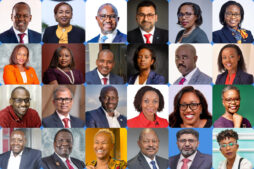 What East Africa’s Senior Executives Are Reading in 2026 — and Why It Matters
What East Africa’s Senior Executives Are Reading in 2026 — and Why It Matters

